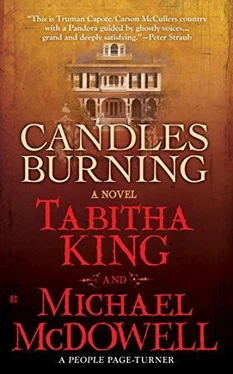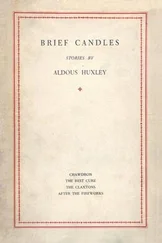When asked why they had singled out Daddy for abduction, Janice said, “Because he was staying on the twelfth floor.”
When asked the significance of the twelfth floor, Judy could provide no answer at all.
When asked why they had not made any attempt to collect the ransom, Judy said, “We were waiting for the right time.”
When asked what the right time would have been, Janice could only shrug.
Why had they tortured Daddy?
Why, when he was dead, had they mutilated and dismembered his corpse?
Why, having gone to the trouble of hiding his torso in a footlocker too small to hold him, all of him, did they leave the footlocker at the foot of the bloodied bed? For lack of a colored man who needed fifteen cents to carry it down the stairs?
In other states, in later years, Judy and Janice might have been judged insane. In Louisiana, in 1958, Judy and Janice were found guilty of kidnapping and first-degree murder. Janice and Judy admitted all the details of Daddy’s torture. If they had left anything out, nobody could imagine what it might be. But the two women died without anyone ever discovering why they had done what they’d done.
What was the prompting? That was the great mystery, why the case is written about even now.
But here is the truth of it: Janice and Judy had no idea why they had done what they had done. There had been a motive all right, but the motive was not theirs . It was someone else’s.
In 1958, when I was only a seven-year-old, I was quite certain I knew why Daddy had died.
He died because Mama and I went shopping.
He died because we had gone into the shop that ticked.
He died because Mama’s brown Hermès Kelly pocketbook had disappeared, to turn up later inside a locked filing cabinet.
The very day we found the first note, I tried to explain all this to Mama, but she grabbed me by the shoulders and shook me hard, and cried, “What shop, Calley? What are you talking about pocketbooks for? Who in God’s Green Glory is Mr. Rideaux, and caint you see that your Mama has other things to think about?”
TWO days after the recovery of The Remains, we returned to Montgomery on the Dixie Hummingbird. It was my first train ride. There were still a lot of firsts in my life at age seven.
The three of us sat by ourselves in the back of a coach, away from the few other passengers. They gawked at us and whispered to one another but left us alone once the train began to move:
gotongotongoton
The footlocker of ransom money was in our coach. Mama made me sit with my feet up on it all the way back from New Orleans. Perhaps she thought no one would suspect that a stupid-looking little girl with overly large ears and clutching a Betsy McCall doll in one fist could possibly have a footlocker full of money under her Mary Janes, or the key to it on a red silk string around her neck. And I was indeed stupid, thanks to the hotel doctor’s tranquilizers still lingering in my small child’s body. Mama’s well-developed facility for believing what she wanted to believe allowed her to pretend that despite the weeklong coverage in newsprint and on the airwaves, the passengers sharing the car were totally unaware of the kidnapping and murder of Joe Cane Dakin. Murder was even then no rarity in New Orleans but the murder of a rich white man is always news anywhere.
Mama had no appropriate widow’s weeds with her but while waiting for the coroner’s release of The Remains and the departure of the next available train, she had obtained an off-the-rack black suit, black pumps and a veiled hat. She had to lift the veil from time to time to have a cigarette. Her makeup only seemed to make her complexion more pale, and her eyes more bruised and swollen with tears. When she spoke, her voice was thick and shaky and distant.
Ford kept his face turned to the window. He wore a new black tie with his navy gabardine Sunday church suit. He had not cried when we were given the bad news but his fingernails were chewed to the quick. Every chance he had he punched, tripped or gooched me. At one point, he backed me into a corner away from the adults and told me that Daddy had been slaughtered like a hog and butchered. That the two women who did it had intended to cook and eat Daddy. That they had collected his blood to make blood sausage. The excessive detail only convinced me that he was lying, as usual. I wriggled free and escaped to the safety of Aunt Jude’s skirts. I almost knocked her over, hugging her.
All the black in my entire wardrobe was on me, in the form of my black Mary Janes and black patent leather belt. Some mothers dress up their little girls like dolls. If Mama ever had done it, she had given up on it by the time I was able to dress myself.
All my dresses, skirts and blouses had the cookie-cutter, ageless, sturdy look of a school uniform. For this return trip, I wore the grey dress with the white Peter Pan collar under my navy wool coat. The red silk string was long enough to hang unseen beneath the dress. The dress and coat were the clothes I had worn on our shopping trip in the rain. Mamadee had sent them out to be pressed on the Monday after Daddy disappeared. I have wondered since if Judy DeLucca had pressed my coat and dress. Certainly they had been returned to the closet with Hotel Pontchartrain paper capes over their shoulders.
As we rode into Alabama, I stared out the window too, but no snow remained to be seen. Try as I might, I could not grasp the magnitude of the calamity that had befallen us. I hardly comprehended what death was. Whatever it was, it happened mostly to old people. I had seen them. Mama and Mamadee shared the conviction that a child was never too young to drag to a funeral parlor or a funeral. I could not recall the specific occasions, only the old people asleep on their satin pillows in their ponderous beds. I do remember that I had felt no fear, no revulsion, and certainly no grief.
But my daddy had not grown grey and wrinkled and shrunken. He had simply gone out and not come back. Everyone insisted that he was not going to come back. I knew that it was childish, so I hid it, but I still clung to the fantasy that he would. I was exhausted with the ceaseless tension of listening constantly for his step.
A porter came with a hand truck to take the footlocker off the train for us. He was a balding middle-aged man with black-framed glasses, arms powerful with the burden of his work, and a uniform worn with pride. He winked at me and gave me a hand up to sit on the footlocker as he trundled it after Mama and Ford. Mama didn’t notice. To be fair, she did have a lot on her mind at the time, but it was also simple fact that she usually looked right through colored people. Ford was pretending that he was alone in the universe or else waiting for everyone to fall down on their knees and beg his pardon for existing.
takatakataka
“Did you know my daddy?” I asked the porter.
He blinked and tilted his head at me questioningly. I guess he saw in my face some answer to his unspoken question because then he smiled and nodded.
“Not personal, Miss. I am sorry for your loss, though. I hear tell Mr. Dakin was an honest man in his dealings.” He spoke so softly that Mama could not hear.
“Thank you,” I said and repeated the formula that I had heard at wakes and funerals: “I am gone miss him.”
I might have asked him if he knew Ida Mae Oakes but Mamadee was in sight, waiting for us near the exit from the lobby. As soon as we were informed that Daddy was deceased, she hastened back to Alabama before us. It was almost as if she were squeamish in the face of the worst. It had fallen to Uncle Billy Cane Dakin to accompany Mama to identify The Remains. Mr. Weems had lingered another day to help make arrangements and then hightailed it after Mamadee.
Читать дальше












